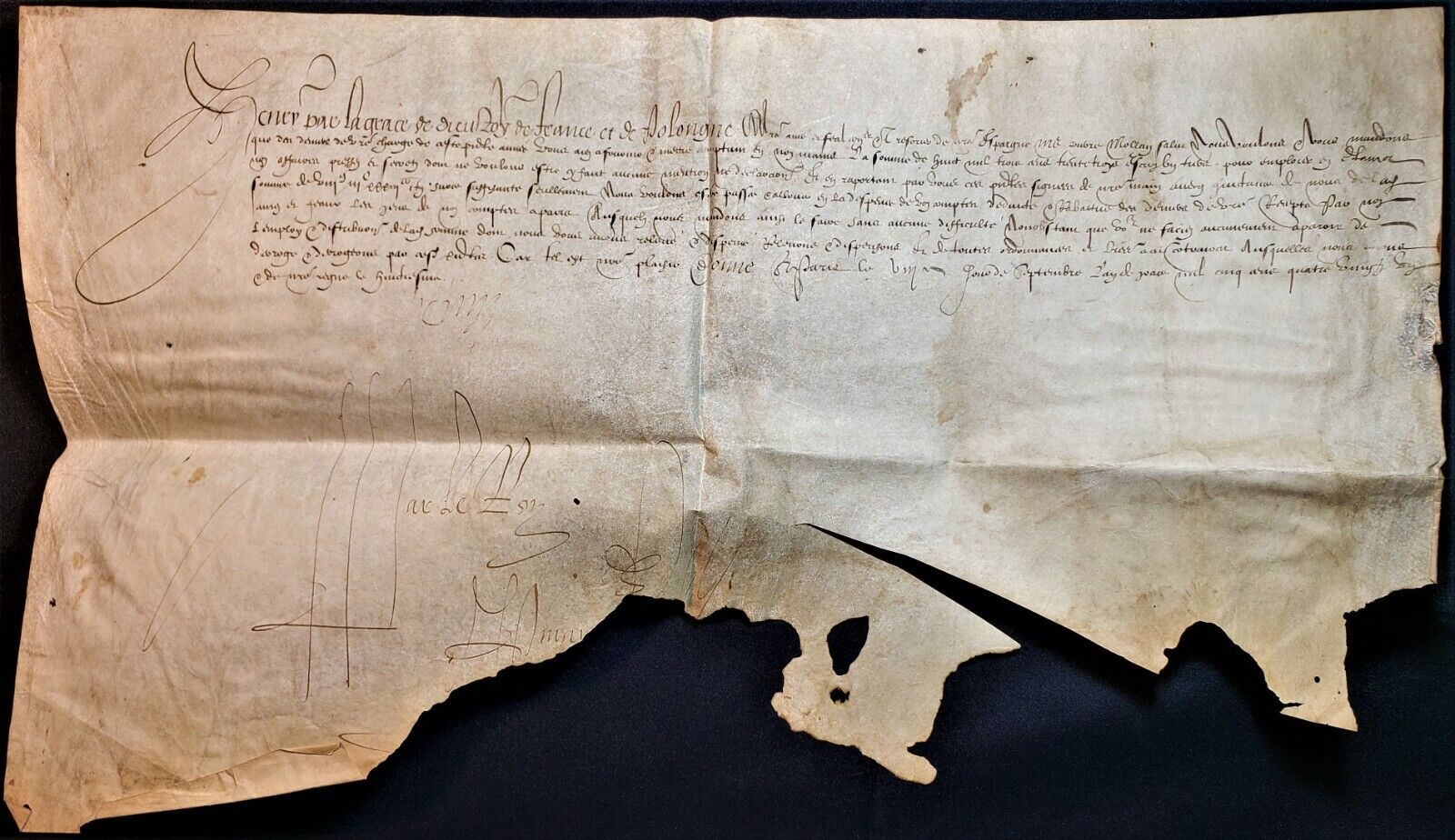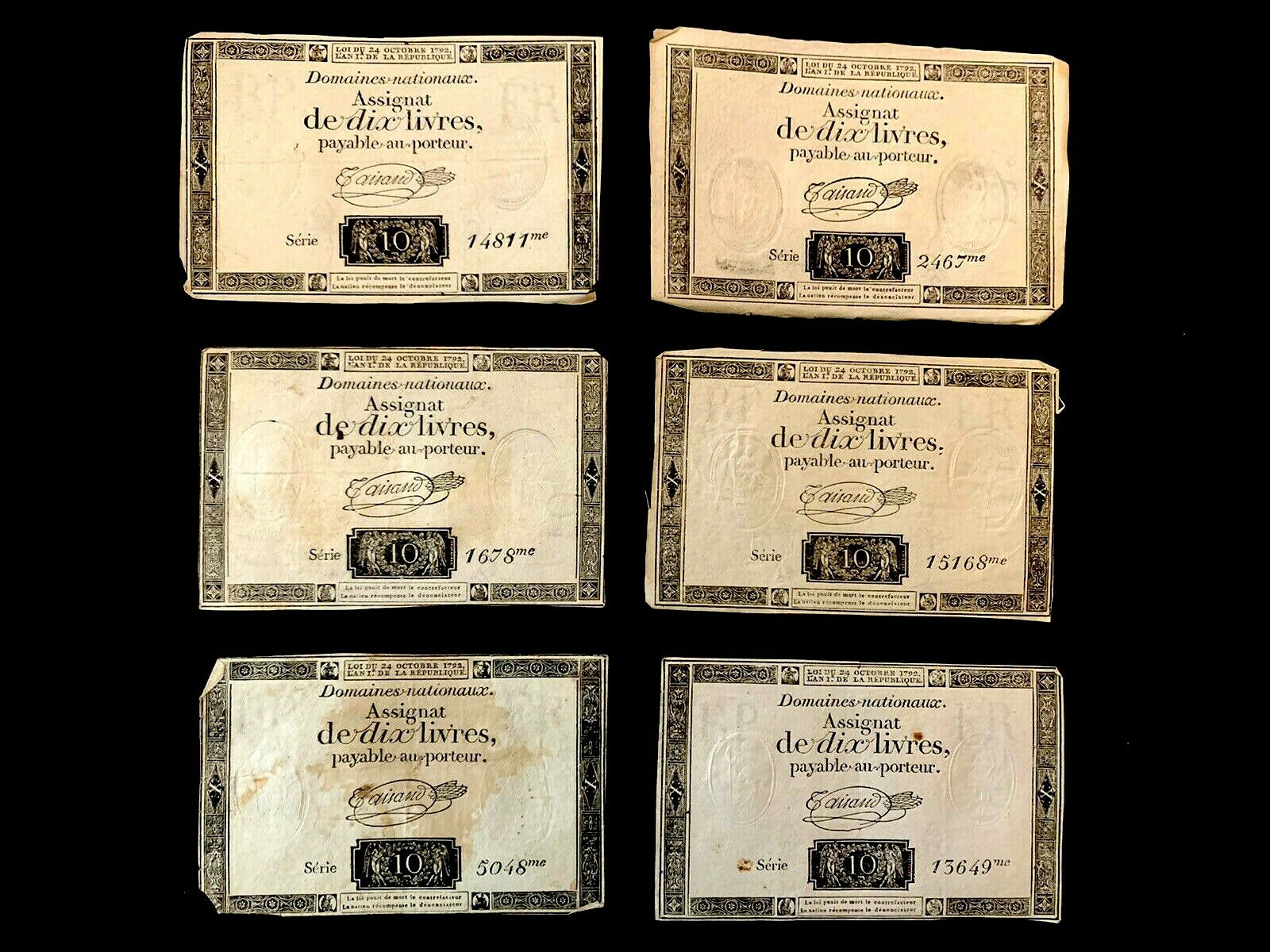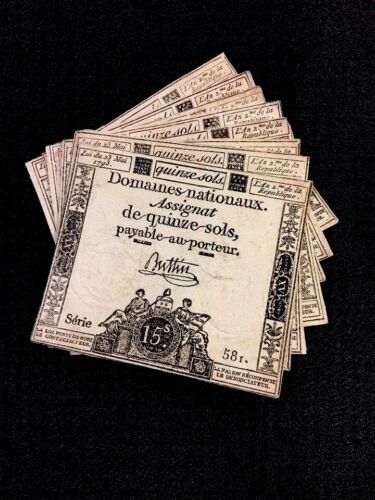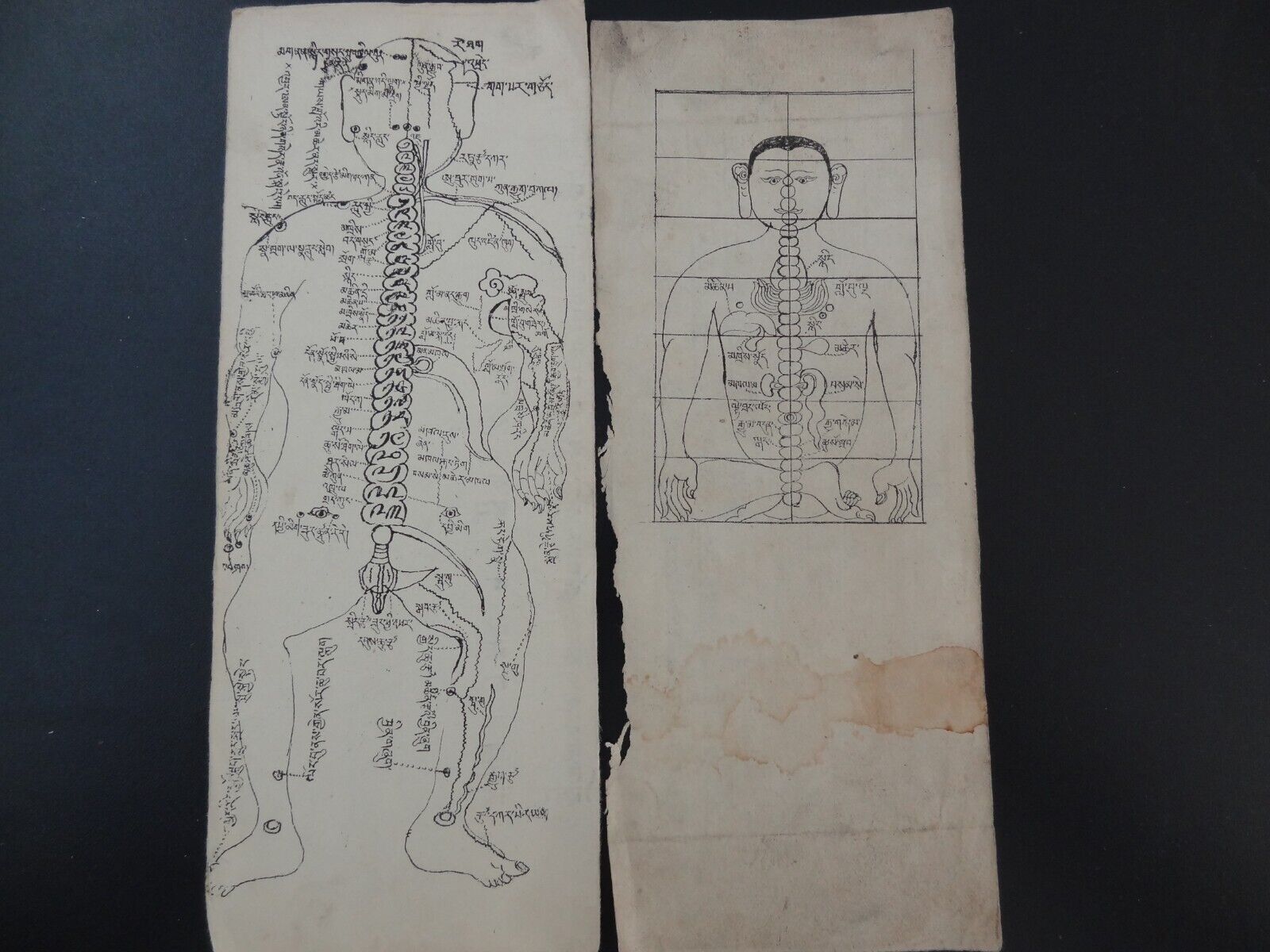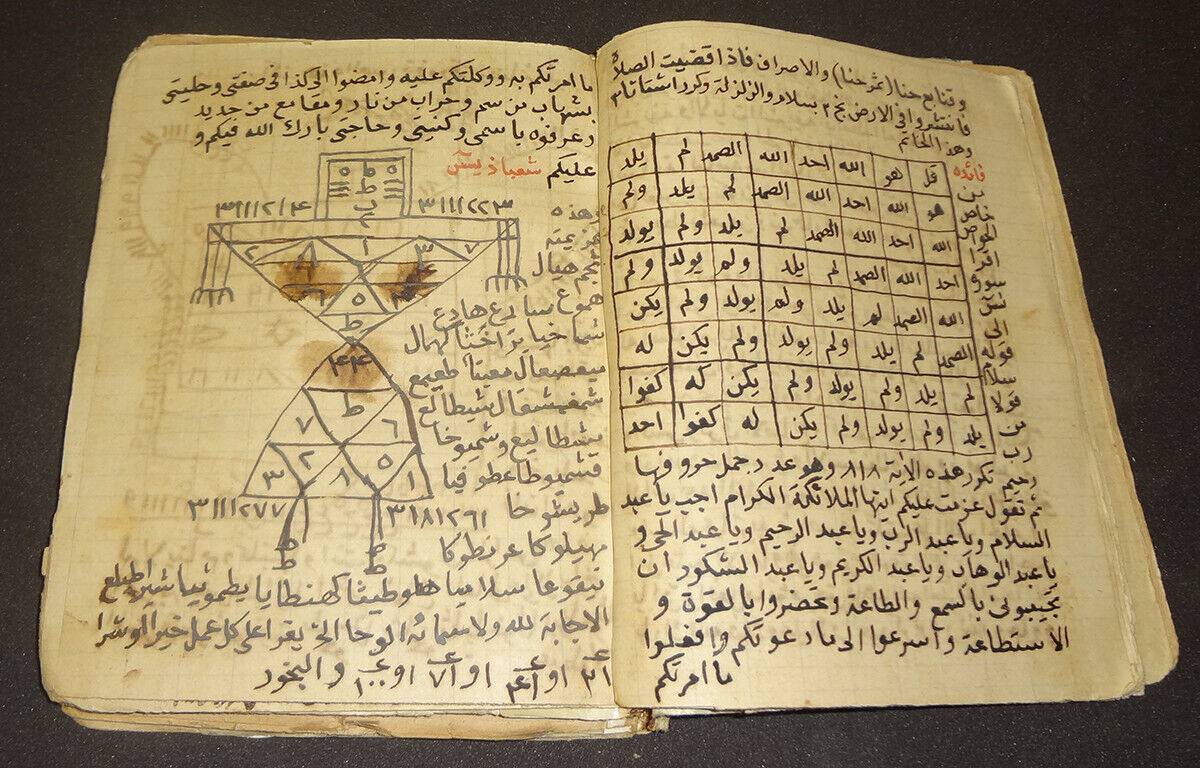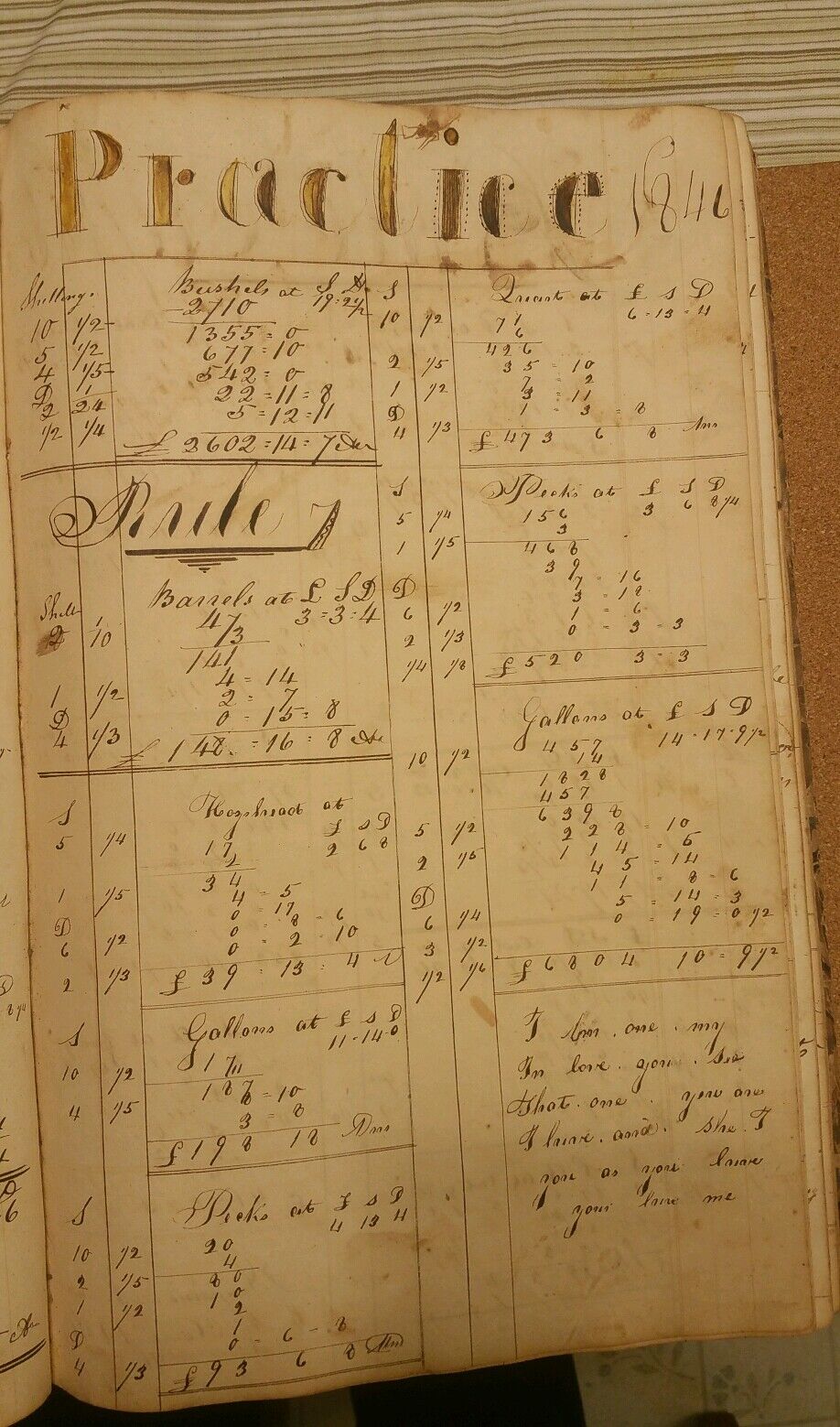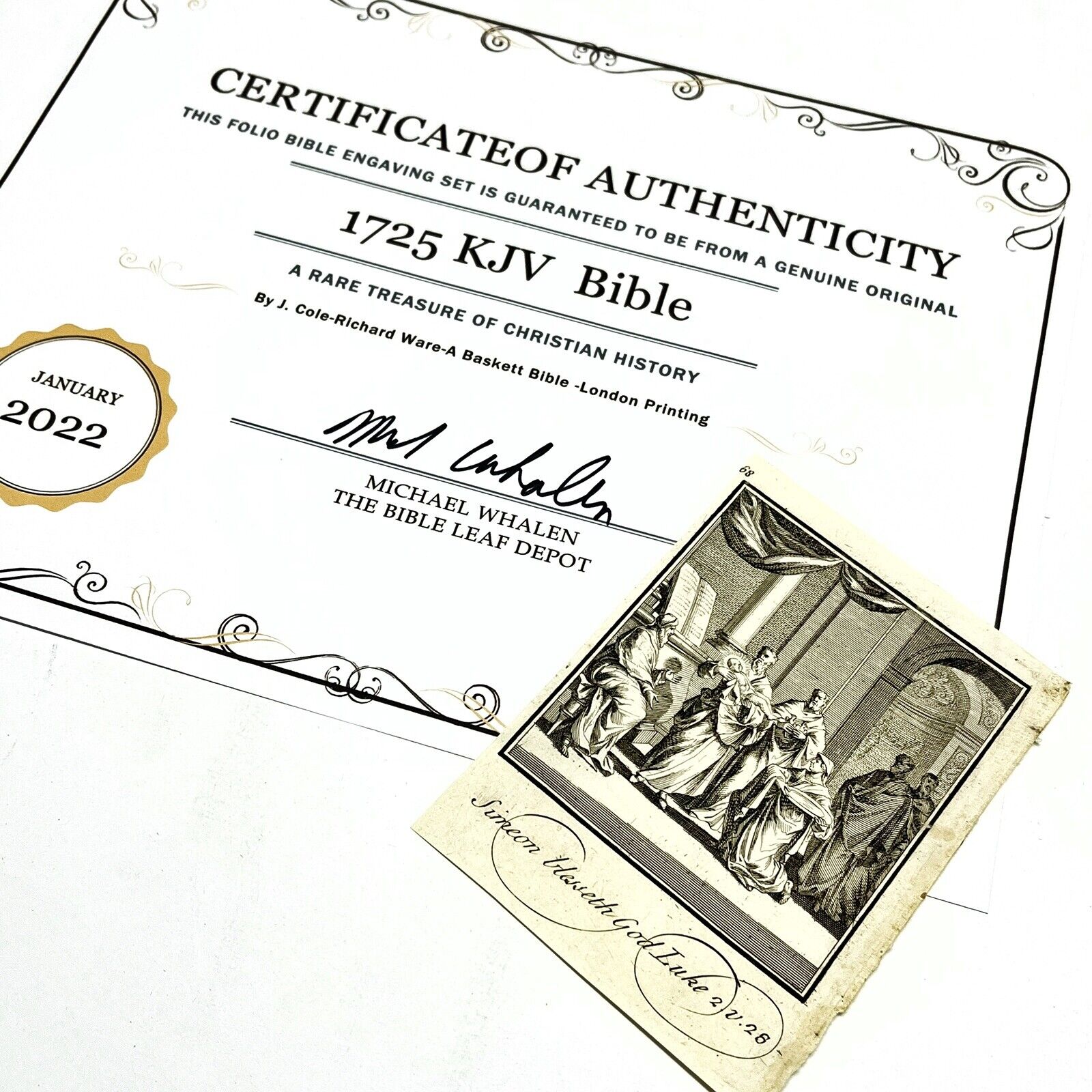-40%
HENRI III KING OF FRANCE AND POLAND SIGNED ORDER TO PAY FOR SECRET EXPENSES 1581
$ 1055.99
- Description
- Size Guide
Description
KING HENRI III ORDER TO HIS ADVISOR TREASURER OF SAVINGS PIERRE MOLLAN TO PAY CASH“The sum of eight thousand three hundred and thirty-three ecus to dispose in certain matters important to our secret affairs which we do not want to be made there any mention or declaration”
Countersigned by Claude Pinart, seigneur de Comblisy in Paris in September 1581
Claude Pinart, seigneur de Comblisy and Crambailles
(died 15 September 1605 in the Château de Cremailles) was a Secretary of State under the French king Henry III, from 13 September 1570 until ordered to retire on 8 September 1588. He was also baron of Cremailles and Malines and the first baron of Valois. He was close to Catherine de’ Medici, and accompanied her in 1578 and 1579. In 1575, he visited Sweden for the negotiations of a possible marriage between Henry III and Princess Elizabeth of Sweden. He visited England as part of an embassy to Elyzabeth I in April 1581.
Henry III (French: Henri III, ne Alexandre Édouard; Polish: Henryk Walezy; Lithuanian: Henrikas Valua; 19 September 1551 – 2 August 1589)
was King of France from 1574 until his death as well as King of Poland and Grand Duke of Lithuania from 1573 to 1575. As the fourth son of King Henry II of France, he was not expected to inherit the French throne and thus was a good candidate for the vacant throne of the Polish-Lithuanian Commonwealth, where he was elected monarch in 1573. During his brief rule, he signed the Henrician Articles into law, recognizing the Polish nobility’s right to freely elect their monarch. Aged 22, Henry abandoned Poland upon inheriting the French throne when his brother, Charles IX, died without issue. France was at the time plagued by the Wars of Religion, and Henry's authority was undermined by violent political factions funded by foreign powers: The Catholic League (supported by Spain and the Pope), the Protestant Huguenots (supported by England and the Dutch) and the Malcontents (led by Henry's own brother the Duke of Alencon, a party of Catholic and Protestant aristocrats who jointly opposed the absolutist ambitions of the king). Henry III was himself a politique, arguing that a strong and religiously tolerant monarchy would save France from collapse. After the death of Henry's younger brother Francis, Duke of Anjou, and when it became apparent that Henry would not produce an heir, the Wars of Religion developed into a succession crisis, the War of the Three Henrys. Henry III's legitimate heir was his distant cousin, King Henry III of Navarre a Protestant. The Catholic League, led by Henry I, Duke of Guise, sought to exclude Protestants from the succession and championed the Catholic Charles, Cardinal of Bourbon, as Henry III's heir. In 1589, Jacques Clement, a Catholic fanatic, murdered Henry III. He was succeeded by the King of Navarre who, as Henry IV, assumed the throne of France after converting to Catholicism, as the first French king of the house of Bourbon.
Size: 14.5" x 9" (37 cm x 23 cm), Signed
